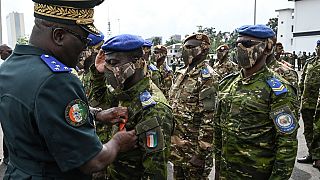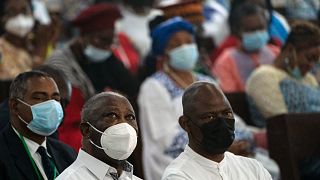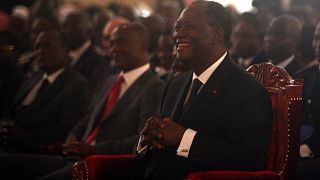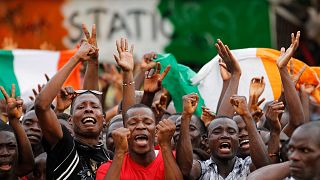Ivory Coast
Ivorian citizens welcome the news of the presidential pardon of the 49 soldiers detained in Mali, formerly sentenced to 20 years in prison and death as “joy for everyone”.
"We have to forgive both sides because we can't accuse each other because the two countries have a really strong fraternal bond and the two populations are really almost the same. So we have to forgive, let it go and then move on. This is Africa after all," reacts Noufo Ouattara, car electrician.
"These soldiers were on a mission not for anyone but for the country and for other international organizations and I think that their return and their release brings joy for everyone. Everybody should be proud and continue to trust in diplomacy," added citizen, Patrick Dali Ory.
This pardon is set to keep the peace between the neighboring countries and aid in calming the unrest in the region.
Relations between ECOWAS and Mali had already been strained before the arrests; the junta has so far resisted West African pressure and sanctions and remained in power, pledging to step down in February 2024.
Ivorian President Alassane Ouattara is considered one of the most intransigent West African leaders towards Mali's putschists.
The junta has so far resisted West African pressure and sanctions and remained in power, pledging to step down in February 2024.
It indicted the 49 soldiers in mid-August and has released no information about their health or well-being since.
Junta leader Goita had said he was open to talks "in the strict respect of the sovereignty of Mali", according to a joint statement from the foreign ministers of Togo and Ivory Coast in July.
After the soldiers were arrested, the UN had acknowledged some procedural "dysfunctions" in a note addressed to the Malian government and admitted that "certain measures have not been followed".
The Ivorian presidency had also acknowledged in September "shortcomings and misunderstandings", after Mali had demanded an apology.
But the row escalated in September, when diplomatic sources in the region said Mali wanted Ivory Coast to acknowledge its responsibility and express regret for deploying the soldiers.
Bamako also wanted Ivory Coast to hand over people who had been on its territory since 2013 but who are wanted in Mali, they said.
Ivory Coast rejected both demands and was prepared for extended negotiations to free the men, the sources said.
"This hostage-taking will not be without consequences," the Ivorian president said at the time.
That led Maiga, who was then interim prime minister, to denounce a "synchronisation of actions" against Mali at the UN General Assembly on September 24.
He attacked UN Secretary General Antonio Guterres for having declared that the Ivorian soldiers were not mercenaries.
He also criticised ECOWAS leader Umaro Sissoco Embalo as well as the heads of state of Ivory Coast and Niger.











01:02
Bill granting head of Mali's junta, Gen. Assimi Goita, five more years in power signed into law
01:12
ECOWAS calls for restraint in violent protests in Togo
00:57
Mali’s Goïta visits Moscow as Africa corps replaces Wagner in fight against Jihadists
01:47
Sierra Leone’s Bio takes over as ECOWAS chair
Go to video
ECOWAS leaders meet in Abuja amid regional tensions and leadership transition
00:54
Mali court places Canada's Barrick gold mine under provisional administration